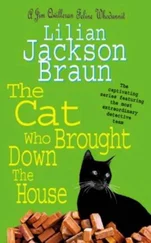Oh go on, he said, drily.
I love you, pal, but you’re too old for it, she said as she buttered a sourdough roll. And you’re also too old for this bullshit crying. Whatever you’ve done, and I’m sure it’s pretty bad, don’t kid yourself that these tears are real. Unless, that is, you actually plan to do something about whatever the hell it is you’ve done. But of course I’m not asking what that is.
Thanks.
Miss Manners again. Does she even exist anymore? Alix held the piece of bread aloft, midbite. I feel really old this week. I keep getting ads on my computer regarding different diseases: multiple sclerosis, cancer, fibromyalgia. It must be because I’m searching for things that a person with those ailments would search for, don’t you think? What else could it be? It’s like the Internet — and by Internet I mean of course whoever or whatever is following my whereabouts on the Internet — it knows on the basis of what shoes I’m lusting over and what gossip I’m scarfing, which out-of-print authors I’m hunting down and what esoteric journals I’m pretending to read, it’s as if it knows what is going on in my body, what I’ll get sick from, when I’ll die.
When?
Well, from what. And the next thing you know it’s when.
You’re more morbid than I am.
That’s always been the case.
Thank you for trying to cheer me up.
Will you stop with the thank-yous?
I’m sorry.
That too. Enough apologizing. I don’t want polite from you.
But I am sorry.
But it isn’t helpful.
I’m sorry anyway.
JONATHAN STOOD at the top of the Spanish Steps and thought: Europe is Disneyland now. He surveyed the exquisitely rendered panorama of elegant proportions and found it lovely, but too familiar, too charming, precious. He remembered coming as a kid when the Continent still felt foreign, exotic, when products in every country announced themselves with different logos, packaging, typography. Today the streets were lined with the same global citizens swinging the same shopping bags from the same luxury brands. He could just as easily have been in New York as Rome. But it was a cliché to complain about such things, and the truth was he didn’t much care. He made a note of it, that was all. Nostalgia, yearning, these feelings didn’t penetrate him. He experienced them as observations only, information which he might use, or more accurately misuse, in order to further his plans, objectives, desires. At the moment he desired a macchiato before his next business meeting. Mission in mind, he scampered down the long flight of stone steps, shiny new shoes striking the stairs like black keys on a piano slipping between the ivories.
He decided to take the scenic route, or rather his favorite route, since every route was the scenic route in Rome. All roads led to Rome, and all roads in Rome led to beauty, pleasure, an opera set around every corner, a quiet narrow snaking via opening suddenly onto a stage lit with the softest colors, a solemnly beautiful church, an empty restaurant, each piazza a new location for delight, a fresh setting for a dream, as if dancers in chiffony skirts and dolce vita bodices might unfurl from the church door and spin on the trattoria tables, or a line of clergymen in jewel-toned robes might march through from stage right, incense swinging, or ancient philosophers might walk out of the Forum, or step out of the paintings in the Vatican, and find themselves facing the perplexing question of how they had arrived in the Renaissance. These ideas manifest themselves in Jonathan’s mind as a backdrop, as a pleasing scrim against which more-urgent matters stretched themselves out, his mental exercises needing a comfortable setting, a kind of hotel-bar environment — artificially costumed, a mélange of periods — in which to lounge and strategize, display themselves, and size up the competition.
His upcoming meeting was not exactly authorized and therefore required a fair amount of mental preparation. It wasn’t exactly his first unauthorized activity, but now he was aggressively taking his career into his own hands, to the next level. He hoped to do something to impress his father, benefit the organization in an unexpected manner, and thereby overcome the boringly predictable control Steve exercised over him, the rigid, manipulative, domineering behavior which Jonathan both raged against and interpreted as love. He had begun his secret campaign in Laos, when he’d taken it upon himself to have the zip liners assassinated. It was bold. Beyond the call of duty. And unknown to Steve. Jonathan had wanted to get the job done right, eliminate the obstacles completely, so that Grant could get his permit, build his restaurant, and the profits, a large percentage of which went to Steve, could begin rolling in. If he had left the job half done, leaving room for the local authorities to doubt him, to think he might bend to their pressures or submit to their customs, he would have opened himself up to potential failure. Had he overdone it? Sure, but in his mind that had been necessary. Did Steve have to know? No. Did Jonathan accomplish his mission? Yes. He had returned home proud and arrogant, expecting to be praised and, in Steve’s eyes, elevated. Instead, he returned home to discover that Steve had developed a vigorous fascination with and unexpected closeness to Neva. This came as more than a surprise to Jonathan. It was an affront and marked the onset of a rivalrous anger and childish shame, a feeling of rejection, humiliation, and narcissistic mortification. Jonathan was no more prepared to manage these feelings than he was prepared to actually run the family business, but in squelching his emotions, in strangling, suffocating, decapitating, and disemboweling them, he found himself plagued with a thirst for revenge that admitted no reason. He would have to take over. This was his only redemption. So when two men named Warren and Wolf approached him with a financial opportunity, he seized it. Fortune favors the bold. Jonathan had heard as much.
—
He turned a corner and emerged in Piazza di Sant’Eustachio, his destination. He drank his macchiato, and then walked to the Pantheon, where, ambling in circles around the perimeter of the building, the light from the perfect hole at the top streaming in milky-white rays of liquid cloud — weightless, angelic, fresco light — he and the man with whom a meeting had been arranged by Warren and Wolf’s people detailed for him the intricacies of transit through Italy. The country had become a popular way station for women on their journeys from Russia, Moldova, Ukraine, and other locations to the United States and other developed nations. A prime stop on a grand tour, much like the tours of the nineteenth century, only not. On these twenty-first-century tours the passage was involuntary and the sightseeing limited. The gentleman explained to Jonathan how Steve’s hotels could be of service, in Italy and elsewhere. He either did not know or did not mention Steve’s earlier refusals, about which Jonathan had not been made aware. But there was the understanding between this adviser and Jonathan that their plans would be orchestrated without Steve’s approval. It was a matter of efficiency. And discretion.
—
They celebrated with a drink. It was a new beginning for Jonathan, or so he felt. Yes, there were many more real estate deals to be made, but this was where the smart money was. This was the future. There was no fighting it: the very newspapers that ran editorials condemning such practices and demanding action by the UN carried classified ads for women. Women for sale. The gentleman cupped his hand and lit a cigarette as he explained. Jonathan looked around and imbibed the Roman air, the Roman elegance, the Roman women walking their Jack Russell terriers and the men eternally tan. The buzz of a Vespa as it swerved around a corner, a woman’s dagger heel balanced steadily on the runner, her leg the length of the road, her black hair flying out from the back of her helmet in swift, brilliant brushwork. He made no connection in his mind between these women he admired and those women whose exploitation he would be facilitating. His was an inconsistent mind. A mind in which principles gave way to expediency. Actually, a mind which did not recognize principles.
Читать дальше












